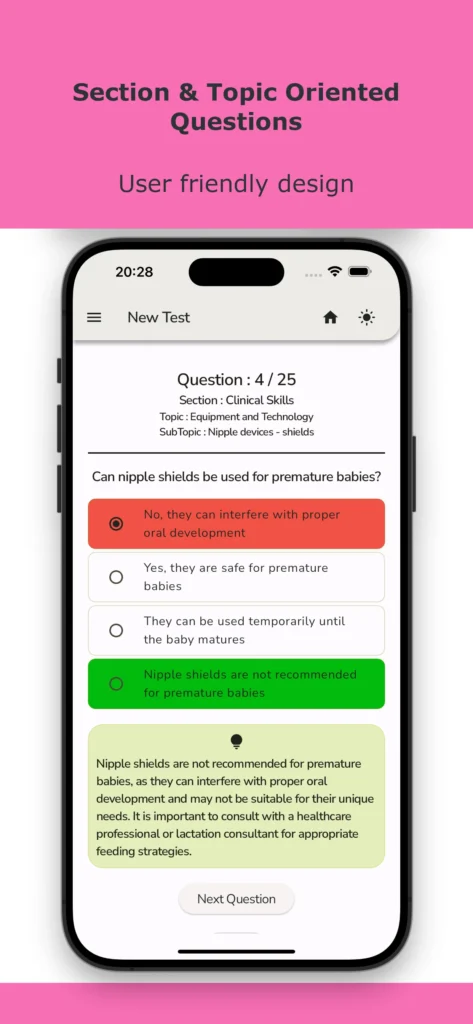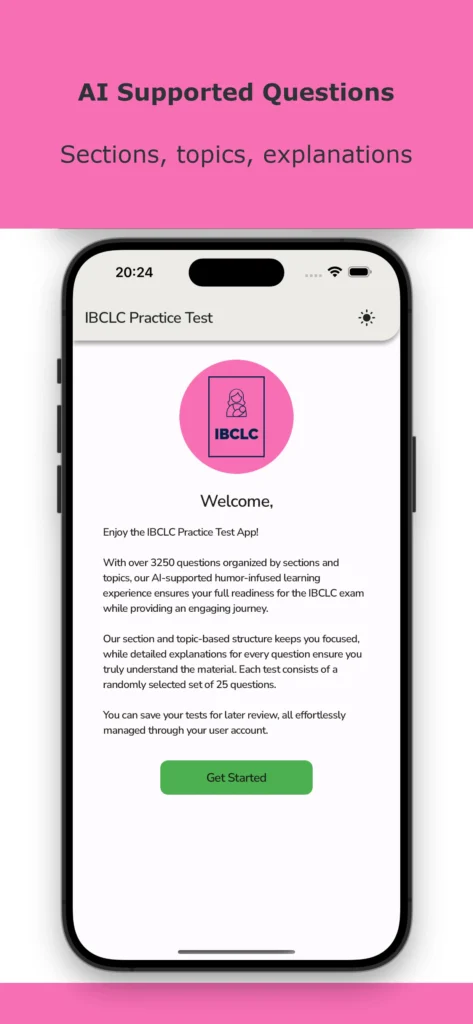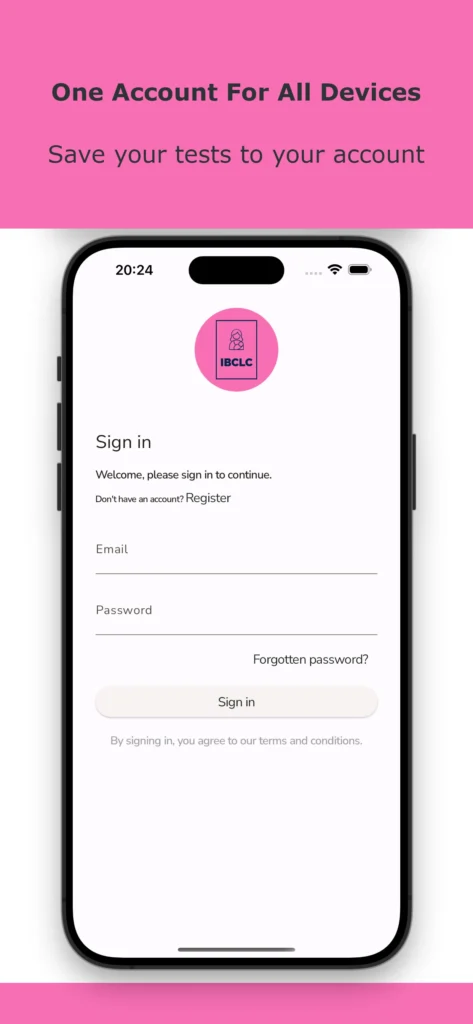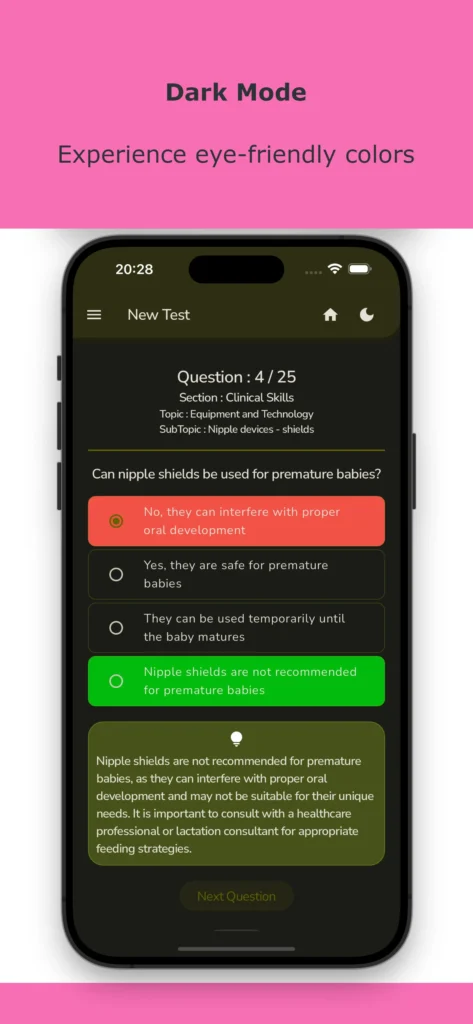Introduction to IBCLC Pathway 2
Welcome to our comprehensive guide on IBCLC Pathway 2! If you’re interested in becoming an International Board Certified Lactation Consultant (IBCLC), Pathway 2 is one of the routes you can take to achieve this esteemed certification. In this section, we will provide you with an overview of what IBCLC Pathway 2 entails and how it can be a viable option for you.
IBCLC Pathway 2 is designed for individuals who have gained knowledge and experience in lactation support through their work in a health-related field. This pathway recognizes the expertise and skills acquired by healthcare professionals who have been providing breastfeeding support to families.
Pathway 2 is a popular choice for healthcare professionals such as nurses, midwives, doctors, and dietitians who have a strong interest in lactation and want to further their career in this specialized field. It offers a streamlined process for those who already possess the necessary knowledge and experience.
One of the key requirements for IBCLC Pathway 2 is to complete a minimum of 90 hours of lactation-specific education. This education can be obtained through various sources, including workshops, conferences, online courses, and self-study modules. It is important to ensure that the education you choose is approved by the International Lactation Consultant Association (ILCA) to meet the requirements of Pathway 2.
In addition to the education component, Pathway 2 also requires a minimum of 500 hours of supervised clinical practice in lactation. This hands-on experience allows you to apply the knowledge gained from your education in a practical setting. The clinical practice can be completed in a variety of settings, such as hospitals, clinics, private practices, or community organizations.
Once you have completed the education and clinical practice requirements, you will need to pass the IBCLC exam. This comprehensive exam assesses your knowledge and skills in various areas of lactation support, including anatomy and physiology of lactation, infant feeding and nutrition, breastfeeding management, and professional ethics.
IBCLC Pathway 2 offers a flexible and accessible route for healthcare professionals to become certified lactation consultants. It recognizes the valuable experience and expertise that healthcare professionals bring to the field of lactation support. By choosing Pathway 2, you can leverage your existing knowledge and skills to make a meaningful impact on the lives of breastfeeding families.
Benefits of Choosing Pathway 2
Choosing Pathway 2 for becoming an IBCLC offers several benefits for individuals interested in pursuing a career in lactation consulting. This pathway is designed for individuals who have already gained significant experience and knowledge in the field of lactation, but may not meet the requirements for Pathway 1.
Here are some of the key benefits of choosing Pathway 2:
1. Flexibility
Pathway 2 allows for greater flexibility in meeting the requirements for becoming an IBCLC. It recognizes the value of prior experience and provides an alternative route for individuals who may not have completed the formal education requirements of Pathway 1.
2. Recognition of Experience
By choosing Pathway 2, your previous experience in the field of lactation is acknowledged and valued. This pathway takes into account the knowledge and skills you have acquired through hands-on experience, allowing you to build upon your existing expertise.
3. Tailored Learning
Pathway 2 offers a more personalized learning experience. It allows you to focus on specific areas of lactation that you may already have experience in, while also providing opportunities to expand your knowledge in other areas. This tailored approach ensures that you are able to enhance your skills and knowledge in a way that aligns with your interests and strengths.
4. Faster Path to Certification
For individuals who have already gained significant experience in the field of lactation, Pathway 2 can offer a faster path to certification as an IBCLC. By leveraging your existing knowledge and skills, you can complete the requirements more efficiently and begin practicing as a certified lactation consultant sooner.
5. Professional Growth
Choosing Pathway 2 not only allows you to become an IBCLC, but it also provides opportunities for professional growth. As you continue to expand your knowledge and skills in lactation consulting, you can pursue advanced certifications, participate in research projects, and contribute to the field through publications and presentations.
Overall, Pathway 2 offers a flexible and efficient route to becoming an IBCLC for individuals who have already gained significant experience in the field of lactation. It recognizes the value of prior knowledge and provides opportunities for tailored learning and professional growth. If you are passionate about supporting breastfeeding families and have a strong foundation in lactation, Pathway 2 may be the right choice for you.
Accredited Lactation Academic Programmes
If you’re considering a career as an International Board Certified Lactation Consultant (IBCLC) through Pathway 2, you’ll need to complete an accredited lactation academic program. These programs provide the necessary education and training to develop the knowledge and skills required to support breastfeeding families.
There are several accredited lactation academic programs available that meet the requirements for Pathway 2. These programs are designed to provide a comprehensive understanding of lactation and breastfeeding, as well as the practical skills needed to assist families in their breastfeeding journey.
One such program is the **[insert program name]**, which offers a rigorous curriculum that covers a wide range of topics related to lactation and breastfeeding. Students in this program learn about the anatomy and physiology of lactation, the importance of breastfeeding for both infants and mothers, and the various challenges that families may face during the breastfeeding process.
In addition to the theoretical knowledge, students also gain hands-on experience through clinical practice. This allows them to apply their learning in real-life situations and develop the necessary skills to support breastfeeding families effectively.
Another accredited lactation academic program is the **[insert program name]**. This program focuses on providing students with a strong foundation in lactation science and evidence-based practice. Students learn about the biological and cultural aspects of breastfeeding, as well as the social and emotional factors that can impact breastfeeding outcomes.
Throughout the program, students have the opportunity to work with experienced lactation consultants and gain practical experience in various settings, such as hospitals, clinics, and community organizations. This hands-on experience is invaluable in preparing students for their future role as IBCLCs.
It’s important to note that each accredited lactation academic program has its own specific requirements and admission criteria. Some programs may require prior healthcare experience or a certain level of education, while others may have specific prerequisites in subjects such as biology or nutrition.
Before applying to a program, it’s essential to thoroughly research and understand the requirements to ensure that you meet the eligibility criteria. Additionally, consider factors such as program duration, location, and cost to find a program that aligns with your goals and circumstances.
By completing an accredited lactation academic program, you’ll gain the knowledge, skills, and experience necessary to pursue a career as an IBCLC through Pathway 2. These programs provide a solid foundation in lactation science and equip you with the tools to make a positive impact on breastfeeding families. Take the first step towards your career as an IBCLC by exploring the accredited lactation academic programs available to you.
Cost of IBCLC Pathway 2
Understanding the Cost of IBCLC Pathway 2
If you’re considering becoming an IBCLC through Pathway 2, it’s important to understand the associated costs. While the exact expenses can vary depending on various factors, such as your location and individual circumstances, we’ll provide you with a general overview of what to expect.
1. Education and Training: The first step in the IBCLC Pathway 2 is completing the required education and training. This typically involves taking college-level courses in lactation and breastfeeding, which can be offered online or in-person. The cost of these courses can range from a few hundred to a few thousand dollars, depending on the institution and program you choose.
2. Clinical Experience: To become an IBCLC, you’ll need to gain a certain number of hours of clinical experience working with breastfeeding families. This may involve volunteering or working under the supervision of a qualified IBCLC. While some opportunities may be unpaid, others may offer a stipend or hourly wage. It’s important to consider any potential costs associated with transportation or childcare while gaining this experience.
3. Exam Fees: Once you’ve completed the required education and clinical experience, you’ll need to pass the IBCLC exam. The exam fee is set by the International Board of Lactation Consultant Examiners (IBLCE) and is subject to change. As of 2021, the exam fee for Pathway 2 candidates is $660 USD. It’s important to budget for this expense and plan accordingly.
4. Continuing Education: After becoming an IBCLC, you’ll need to maintain your certification through continuing education. This involves completing a certain number of continuing education hours every five years. The cost of these courses can vary, but it’s important to budget for ongoing education expenses throughout your career as an IBCLC.
While the cost of IBCLC Pathway 2 can seem daunting, it’s important to remember that this investment can lead to a rewarding and fulfilling career helping breastfeeding families. Additionally, there may be scholarships, grants, or financial assistance programs available to help offset some of the costs. It’s worth exploring these options to make the pathway more accessible.
By carefully considering the costs and planning ahead, you can embark on your journey to becoming an IBCLC through Pathway 2 with confidence and financial preparedness.
Clinical Lactation Experience
What is Clinical Lactation Experience?
Clinical lactation experience is a crucial component of the IBCLC Pathway 2 certification process. It involves gaining hands-on experience working directly with breastfeeding families under the supervision of a qualified mentor. This experience provides aspiring lactation consultants with the practical skills and knowledge necessary to support and assist breastfeeding individuals.
During the clinical lactation experience, candidates have the opportunity to observe and participate in various aspects of lactation support, including:
- Assessing breastfeeding techniques and positions
- Helping mothers establish and maintain a good milk supply
- Assisting with latch and positioning issues
- Providing guidance on breastfeeding challenges and solutions
- Supporting mothers with breastfeeding difficulties, such as sore nipples or engorgement
By working directly with breastfeeding families, candidates can develop their communication skills, gain practical experience in breastfeeding management, and enhance their understanding of the challenges and joys of breastfeeding.
Importance of Clinical Lactation Experience
Clinical lactation experience is a vital part of the IBCLC Pathway 2 certification process for several reasons:
- Hands-on Learning: Working directly with breastfeeding families allows candidates to apply the knowledge they have gained through coursework and theoretical study. It provides an opportunity to see firsthand the unique challenges and dynamics of each breastfeeding dyad.
- Building Competence: Through clinical experience, candidates can develop their skills in assessing breastfeeding problems, providing appropriate support, and implementing evidence-based interventions. This hands-on experience helps build confidence and competence in working with breastfeeding individuals.
- Professional Networking: Clinical lactation experience often involves working alongside experienced lactation consultants and other healthcare professionals. This provides candidates with the opportunity to network, learn from experienced practitioners, and build professional relationships within the lactation community.
- Evidence of Expertise: Clinical lactation experience is a tangible demonstration of a candidate’s commitment to the field of lactation consulting. It showcases their dedication to gaining practical skills and knowledge to support breastfeeding families.
Requirements for Clinical Lactation Experience
To fulfill the clinical lactation experience requirement for IBCLC Pathway 2, candidates must:
- Complete a minimum of 500 hours of supervised clinical experience
- Work with a qualified mentor who is an IBCLC or an experienced healthcare professional
- Document their clinical experience, including the number of hours worked, the types of cases encountered, and the skills and knowledge gained
- Obtain feedback and evaluation from their mentor to assess their progress and areas for improvement
It is important for candidates to choose a mentor who can provide appropriate guidance and support throughout the clinical experience. The mentor plays a crucial role in helping candidates develop their skills and knowledge in lactation consulting.
Overall, clinical lactation experience is a valuable opportunity for aspiring lactation consultants to gain practical skills, build competence, and demonstrate their dedication to supporting breastfeeding families. It is an essential step in the IBCLC Pathway 2 certification process and prepares candidates for a rewarding career in lactation consulting.
Conclusion
In conclusion, the IBCLC Pathway 2 is a comprehensive and rewarding journey for individuals seeking to become International Board Certified Lactation Consultants. This pathway offers a unique opportunity for those who may not have a healthcare background but are passionate about supporting breastfeeding families.
Throughout this guide, we have explored the various steps and requirements of Pathway 2, including the educational components, clinical experience, and exam preparation. We have also highlighted the importance of mentorship and continuing education in this field.
By completing the necessary coursework, gaining hands-on experience, and passing the IBCLC exam, individuals can become certified IBCLCs and make a significant impact on the lives of breastfeeding families. The knowledge and skills acquired through this pathway will enable them to provide evidence-based lactation support, promote breastfeeding, and improve maternal and infant health outcomes.
It is important to note that the IBCLC certification is recognized globally and holds a high level of credibility. As an IBCLC, you will join a community of professionals dedicated to promoting and protecting breastfeeding.
If you are considering pursuing the IBCLC Pathway 2, we encourage you to take the first step by researching accredited lactation education programs and connecting with experienced IBCLCs who can guide you through the process.
Remember, becoming an IBCLC is a journey that requires dedication, perseverance, and a genuine passion for supporting breastfeeding families. The rewards, both personally and professionally, are immeasurable.
We hope this guide has provided you with valuable insights and resources to embark on your IBCLC Pathway 2 journey. Best of luck in your pursuit of becoming an IBCLC and making a positive impact in the field of lactation support!








